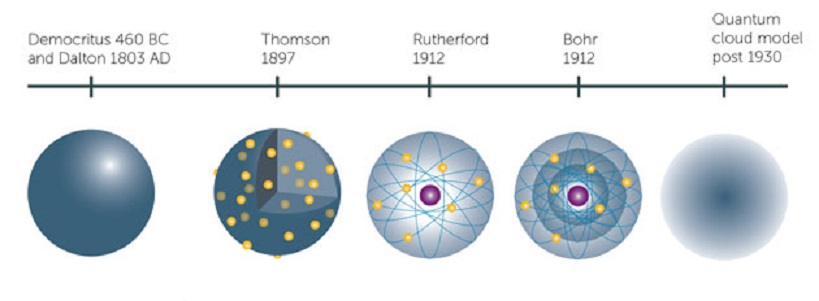Ecphantus the Pythagorean
Ekphantos (Greek Ἔκφαντος ) was an ancient Greek philosopher ( Pythagoras ) and astronomer. He is sometimes called Ekphantos of Syracuse or Ekphantos of Croton. Its life time is only approximately known; they apparently falls into the fourth, and perhaps as early as the late fifth century BC
Life
The information on the sources of origin of the Ekphantos are different. The Doxograph Aetius and the Christian writer Hippolytus of Rome mention a philosopher Ekphantos of Syracuse, Aetius describes him as Pythagoreans ( followers of the teachings of the philosopher Pythagoras ). Even the late ancient philosopher Iamblichus know of one Pythagoreans called Ekphantos; probably is the same person. But Iamblichus leads him on a list of Pythagoreans, the (now Crotone in Calabria, southern Italy ) came from the city of Croton. Which of the two indications of source credibility is unclear.
Otherwise, his life nothing is known. His ideas suggests that he developed his doctrine in the 4th century; perhaps his birth to be dated to the late 5th century. In research, it is usually considered to be a contemporary of Archytas and Hicetas of Syracuse. The hypothesis that he was a disciple of Hicetas, relies only on a weak indication ( in both the axial rotation of the earth plays an important role ). After all, this evidence suggests out that Ekphantos well, stand with Hicetas, who was also in contact Pythagoreans, and that the two are not independent of each other comes to their views
Teaching
According to Hippolytus Ekphantos held an objective knowledge impossible, and thought everyone put what he believes to be reality, as he sees fit firmly. So he was a subjectivist epistemology. In it his mind touched with a sense of sophistry ( Protagoras ). In natural philosophy he represented, as Hippolytus and Aetios report an atomistic doctrine. In his view, the material world consists of " indivisible bodies " ( atoms) and empty space between them. Of the atoms, the smallest units of matter, from which sensible things are put together, there are different types, which differ in size, shape and force ( dynamis). The variety and versatility of visible things arises from the fact that they consist of different combinations of these different atoms.
The cause of the movement is not an all things inherent Ekphantos took the weight of the body or an external stimulus to, but " divine power ", which he called "mind" ( nous ) or soul. The cosmos is a manifestation of divine power and therefore spherical (the ball was considered the most perfect geometric solids ); he would guided by Providence. With its view, the Earth located at the center of the universe, Ekphantos agreed with the majority of that time astronomers and natural philosophers. He went from an axis of rotation of the earth from west to east. A plurality of universes ( parallel worlds ) he refused. He is said to have assumed an infinite number of atoms; since this assumption is incompatible with that of a single, limited as ball cosmos, the textual tradition is obviously flawed, and instead of " unlimited " is " not unlimited " to read.
Reception
Johannes Stobaeus delivered four pieces of text from a supposedly written by Ekphantos treatise Peri basileías ( " About the kingship " ) in the Doric dialect. This font comes but certainly not of Ekphantos. It belongs to the philosophical treatises pseudepigraphical whose anonymous authors attributed their writings known Pythagoreans the past in order to gain their literary fictions attention. The dating of the work is controversial; according to a research think it belongs in the era of Hellenism, for another, apparently prevails in the Roman Empire. Pseudo - Ekphantos emphasizes the godlike rank of the ruler in the divine world order. In his view, the ruler of the state, what is the deity of the cosmos; he is by his virtue be as godlike as possible, while his subjects to align in his image, so that in human society reflects the harmony of the cosmos. Pseudo - Ekphantos considered the earth as mother of men; whose father is the " eternal beings ," a deity, which allows the people to sit up. Actually, the man is on earth a stranger, his true home is a world beyond.
After an earlier opinion research that has not prevailed, Heraclides Ponticus wrote a dialogue, the protagonists were Ekphantos and Hicetas; this dialogue is the source for the ancient tradition of the teachings of Ekphantos. With this assumption, the assumption was connected Ekphantos was possibly not a historical figure, but a literary fiction of the Heraclides; at least be attributed to him not authentic views.
Nicolaus Copernicus mentioned Ekphantos among the ancient Pythagoreans, who taught a movement of the earth and which he therefore regarded as a precursor of his views on the mobility of the earth.
Swell
Maria Timpanaro Cardini: Pitagorici. Testimonianze e frammenti. Vol 2, La Nuova Italia, Florence 1962, pp. 406-412 and 416-421 ( Greek source texts with Italian translation and commentary )
[1]













